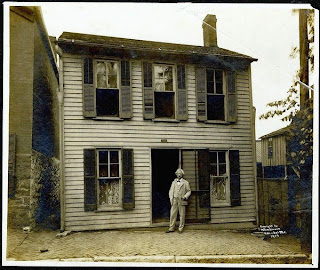''Team of Rivals" is also an America ''coming-of-age" saga. Lincoln, Seward, Chase et al. are sketched as being part of a ''restless generation," born when Founding Fathers occupied the White House and the Louisiana Purchase netted nearly 530 million new acres to be explored. The Western Expansion motto of this burgeoning generation, in fact, was cleverly captured in two lines of Stephen Vincent Benet's verse: ''The stream uncrossed, the promise still untried / The metal sleeping in the mountainside." None of the protagonists in ''Team of Rivals" hailed from the Deep South or Great Plains. _______________________________ From a review by Douglas Brinkley, 2005

I was surprised I got my copy so soon. I remember the official release date being Nov. 30. We almost share the same birthday.
ReplyDeleteIt's available now here as well.
ReplyDeleteAnd Huckleberry Finn turns 125:
ReplyDeletehttp://www.latimes.com/entertainment/news/la-ca-mark-twain-20101114,0,5921342.story
I would really love to start the new year by reading the Twain book with everyone; can it be deemed history? It certainly is historic.
ReplyDeleteI think the book is in the spirit of this place and many of us already have it. Might take a year long commitment to read it, though -- it's LONG and this is only volume 1.
ReplyDeleteIf you do read it, we can always set up a page for your thoughts/comments where others can join in if they decide to also read it.
And ... it's a best seller!
ReplyDeletehttp://www.nytimes.com/2010/11/20/books/20twain.html
Yardley is fast becoming my favorite reviewer:
ReplyDeleteReading the "Autobiography of Mark Twain" too often is like being trapped in a locked room with a garrulous old coot (Twain turned 70 just before these dictations began) who loves the sound of his own voice and hasn't the slightest inclination to turn it off.
http://www.washingtonpost.com/wp-dyn/content/article/2010/11/19/AR2010111906788.html
Rather sad to see Twain get bumped by Dubya in the Amazon Top 100.
ReplyDelete